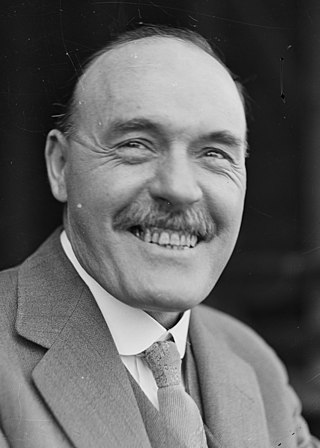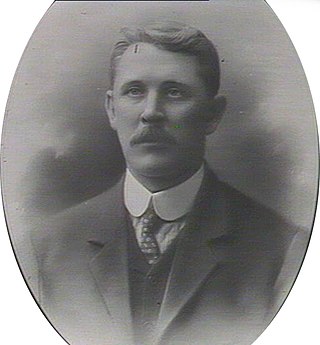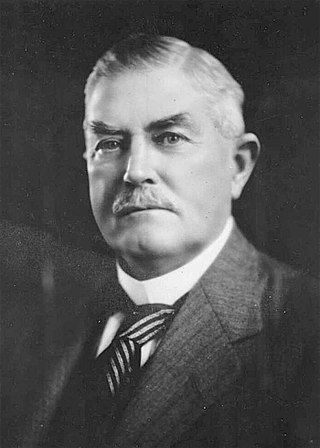Related Research Articles

Hansard is the transcripts of parliamentary debates in Britain and many Commonwealth countries. It is named after Thomas Curson Hansard (1776–1833), a London printer and publisher, who was the first official printer to the Parliament at Westminster.
Parliamentary privilege is a legal immunity enjoyed by members of certain legislatures, in which legislators are granted protection against civil or criminal liability for actions done or statements made in the course of their legislative duties. It is common in countries whose constitutions are based on the Westminster system.
Gloucester was an electoral district of the Legislative Assembly in the Australian state of New South Wales, originally created in 1880, partly replacing Williams, and named after Gloucester or Gloucester County. In 1920, with the introduction of proportional representation, it was absorbed into Oxley, along with Raleigh. It was recreated in 1927, and abolished in 1988 and replaced by Myall Lakes and Port Stephens.

William Patrick Crick was an Australian politician, solicitor and newspaper proprietor. He was described by author Cyril Pearl as an irresistible demagogue, who "looked like a prize fighter, dressed like a tramp, talked like a bullocky, and to complete the pattern of popular virtues, owned champion horses which he backed heavily and recklessly." William Willis, a political collaborator, described him as a "conservative dressed in the garments of democracy [with an] unbridled ambition and craving for public notice"

John Thomson was an Australian politician. He was a Progressive Party member of the New South Wales Legislative Assembly from 1901 to 1904, representing the Manning electorate. He was then a member of the Australian House of Representatives from 1906 to 1919, representing Cowper for the Protectionist Party and its successors the Commonwealth Liberal Party and Nationalist Party.
John Edward Hatton is a former Australian politician, and a National Trust of Australia nominated Australian Living Treasure. He was the independent member of the Legislative Assembly of the New South Wales parliament for the seat of South Coast from 1973 to 1995. Notably, the allegations about police corruption which John raised in Parliament resulted in the Wood Royal Commission. He is currently a social activist in his local community.
Members of the New South Wales Legislative Assembly who served in the 26th parliament of New South Wales held heir seats from 1922 to 1925. They were elected at the 1922 state election on 25 March 1922. The Speaker was Daniel Levy.
Members of the New South Wales Legislative Assembly who served in the 24th parliament of New South Wales held their seats from 1917 to 1920. They were elected at the 1917 state election on 24 March 1917. Speaker was John Cohen until 19 August 1919 when he was succeeded by Daniel Levy.

The 1925 New South Wales state election was held on 30 May 1925. This election was for all of the 90 seats in the 27th New South Wales Legislative Assembly and was conducted in multiple-member constituencies using the Hare Clark single transferable vote. This was the last election to use STV to elect the NSW Assembly.

James Henry Young was an Australian colonial businessman and politician and Speaker of the New South Wales Legislative Assembly.

James Ashton was an Australian politician.

The Fuller ministry (1921) or First Fuller ministry was the 39th ministry of the New South Wales Government, and was led by the 22nd Premier, Sir George Fuller. The ministry covers just seven hours during 20 December 1921, the shortest of any ministry in the history of self-government in the state.

The Fuller ministry (1922–1925) or Second Fuller ministry was the 41st ministry of the New South Wales Government, and was led by the 22nd Premier, Sir George Fuller. This ministry was the second of two occasions where Fuller was Premier.
Richard Atkinson Price was an Irish-born Australian politician.

The Wran ministry (1983–1984) or Fifth Wran ministry was the 75th ministry of the New South Wales Government, and was led by the 35th Premier of New South Wales, Neville Wran, representing the Labor Party. It was the fifth of eight consecutive occasions when Wran was Premier.
Members of the New South Wales Legislative Council who served from 1925 to 1927 were appointed for life by the Governor on the advice of the Premier. This list includes members between the 1925 state election on 30 May 1925 and the 1927 state election on 8 October 1927. The President was Fred Flowers. The Labor platform included the abolition of the Legislative Council. At the opening of the new parliament on 24 June 1925 there were 75 members of the council, with just 23 Labor members and Premier Jack Lang had been seeking to appoint 25 new members, however the Governor Sir Dudley de Chair had declined to do so in September 1925. In December the Governor agreed to make the appointments in circumstances that are disputed. De Chair understood there was an agreement that the appointments would not be used to abolish the Legislative Council, while Lang said he gave no such undertaking. All 25 appointees took the pledge to implement the Labor platform, "including the abolition of the Legislative Council", similar to that signed by other Labor members.
James Edward Hiram Houghton was a member of the Queensland Legislative Assembly.
Gloucester an electoral district of the Legislative Assembly in the Australian state of New South Wales had two incarnations from 1880 until 1920 and from 1927 until 1988.
A by-election was held for the New South Wales Legislative Assembly electorate of Bathurst on 8 February 1884 as a result of the Legislative Assembly declaring the seats of Francis Suttor, and George Reid, were vacant as a result of a report of the Committee of Elections and Qualifications that they were incapable of being elected, or of sitting, or voting, as a member of the Assembly.
A by-election was held for the New South Wales Legislative Assembly electorate of East Sydney on 29 February 1884 as a result of the Legislative Assembly declaring the seats of Francis Suttor, and George Reid, were vacant as a result of a report of the Committee of Elections and Qualifications that they were incapable of being elected, or of sitting, or voting, as a member of the Assembly.
References
- ↑ "Mr Richard Atkinson Price (1864–1936)". Former members of the Parliament of New South Wales . Retrieved 10 May 2019.
- 1 2 Price, Richard (13 December 1916). "Loan estimates" (pdf). Parliamentary Debates (Hansard) . New South Wales: Legislative Assembly. pp. 3629–3631. Retrieved 14 September 2020.
- 1 2 3 Price, Richard (5 September 1917). "Supply: Secretary for Lands" (pdf). Parliamentary Debates (Hansard) . New South Wales: Legislative Assembly. pp. 7047–7050. Retrieved 14 September 2020.
- ↑ Holt, H T E (1983). "Hamilton, Hugh Montgomerie (1854–1930)". Australian Dictionary of Biography . Canberra: National Centre of Biography, Australian National University. ISBN 978-0-522-84459-7. ISSN 1833-7538. OCLC 70677943 . Retrieved 14 September 2020.
- 1 2 "Appointment of Royal Commission". Government Gazette of the State of New South Wales . No. 166. 21 September 1917. p. 5248. Retrieved 14 September 2020– via Trove.
- ↑ Griffith, Gareth (April 2007). "Parliamentary Privilege: Major Developments and Current Issues" (PDF). Background Paper No 1/07. p. 82. ISBN 0731318021. ISSN 1325-4456 . Retrieved 14 September 2020.
- 1 2 3 4 "Privilege: charges made by Mr R A Price" (pdf). Parliamentary Debates (Hansard) . New South Wales: Legislative Assembly. 17 October 1917. pp. 1732–1786. Retrieved 14 September 2020.
- 1 2 Green, Antony. "1917 Gloucester by-election". New South Wales Election Results 1856-2007. Parliament of New South Wales . Retrieved 14 September 2020.
- ↑ "Writ of election: Gloucester". Government Gazette of the State of New South Wales . No. 188. 19 October 1917. p. 5763. Retrieved 14 September 2020– via Trove.
- ↑ Green, Antony. "1917 Gloucester". New South Wales Election Results 1856-2007. Parliament of New South Wales . Retrieved 14 September 2020.